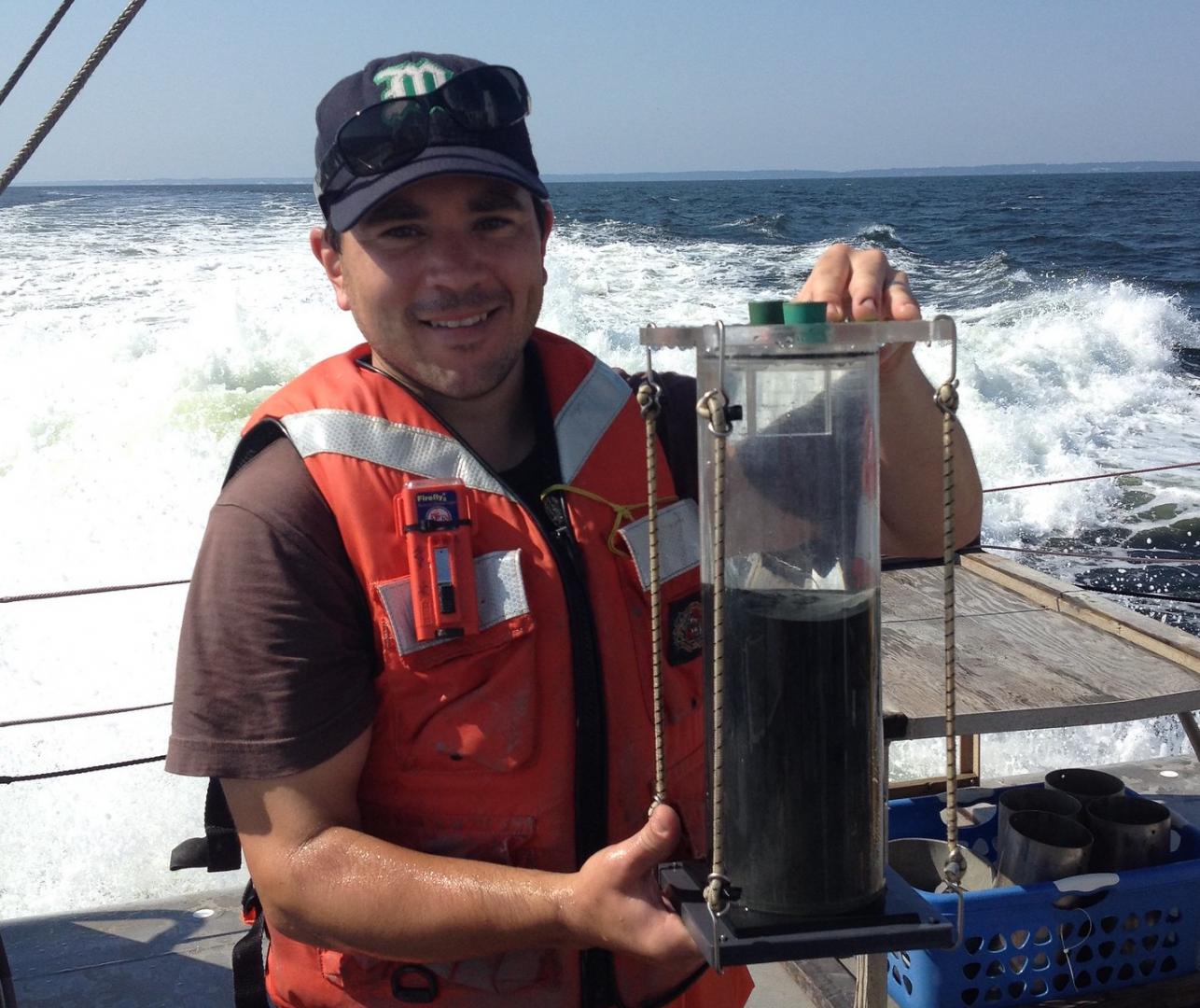Jeremy Testa an Invited Lecturer in Natural Science and Mathematics Colloquia Series Michael Bruckler September 23, 2019 - 12:41 pm
September 23, 2019

St. Mary’s College of Maryland’s Biology Department presents Jeremy Testa to discuss “The Long Road of Chesapeake Bay Restoration: Resistance, Resilience, and Recovery” as part of the Natural Science and Mathematics Colloquia series. The talk takes place on Oct. 30 at 4:45 p.m. in Schaefer Hall 106.
Testa, visiting the National Public Honors College from the University of Maryland Center for Environmental Science, will discuss the socio-economic commitment to restoring the Chesapeake Bay after decades of efforts to improve watershed management and restore tidal water quality. The large size and complexity of the Chesapeake Bay complicates restoration because watershed nutrient sources are spatially variable, vulnerability to pollution is not uniform in tidal waters, and changes to biological communities’ mediate responses to restoration efforts. Testa’s presentation highlights long-term change in the Chesapeake Bay water quality and highlights the factors that lead to restoration success, resilience to both positive and negative changes, and resistance to change.
The Natural Science and Mathematics Colloquia are lectures for the members of St. Mary’s College and the general public to explore new developments in the sciences and mathematics. The last speaker for fall 2019 is Lisa Greer discussing “The Environmental Impact of Fashion” on Nov. 20. The lectures are free of charge and open to the public.
September 23, 2019

St. Mary’s College of Maryland’s Biology Department presents Jeremy Testa to discuss “The Long Road of Chesapeake Bay Restoration: Resistance, Resilience, and Recovery” as part of the Natural Science and Mathematics Colloquia series. The talk takes place on Oct. 30 at 4:45 p.m. in Schaefer Hall 106.
Testa, visiting the National Public Honors College from the University of Maryland Center for Environmental Science, will discuss the socio-economic commitment to restoring the Chesapeake Bay after decades of efforts to improve watershed management and restore tidal water quality. The large size and complexity of the Chesapeake Bay complicates restoration because watershed nutrient sources are spatially variable, vulnerability to pollution is not uniform in tidal waters, and changes to biological communities’ mediate responses to restoration efforts. Testa’s presentation highlights long-term change in the Chesapeake Bay water quality and highlights the factors that lead to restoration success, resilience to both positive and negative changes, and resistance to change.
The Natural Science and Mathematics Colloquia are lectures for the members of St. Mary’s College and the general public to explore new developments in the sciences and mathematics. The last speaker for fall 2019 is Lisa Greer discussing “The Environmental Impact of Fashion” on Nov. 20. The lectures are free of charge and open to the public.
